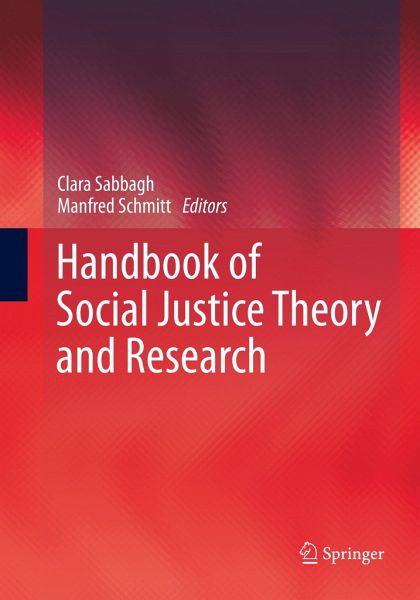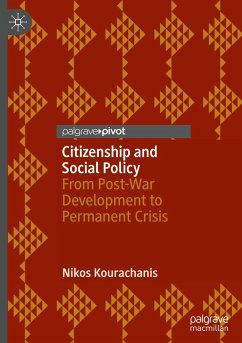
Handbook of Social Justice Theory and Research
Versandkostenfrei!
Versandfertig in 6-10 Tagen
228,99 €
inkl. MwSt.

PAYBACK Punkte
114 °P sammeln!
The International Society for Justice Research (ISJR) aims to provide a platform for interdisciplinary justice scholars who are encouraged to present and exchange their ideas. This exchange has yielded a fruitful advance of theoretical and empirically-oriented justice research.This volume substantiates this academic legacy and the research prospects of the ISJR in the field of justice theory and research. Included are themes and topics such as the theory of the justice motive, the mapping of the multifaceted forms of justice (distributive, procedural) and justice in context-bound spheres (e.g....
The International Society for Justice Research (ISJR) aims to provide a platform for interdisciplinary justice scholars who are encouraged to present and exchange their ideas. This exchange has yielded a fruitful advance of theoretical and empirically-oriented justice research.
This volume substantiates this academic legacy and the research prospects of the ISJR in the field of justice theory and research. Included are themes and topics such as the theory of the justice motive, the mapping of the multifaceted forms of justice (distributive, procedural) and justice in context-bound spheres (e.g. non-humans). It presents a comprehensive "state of the art" overview in the field of justice research theory and it puts forth an agenda for future interdisciplinary and international justice research. It is worth noting that authors in this proposed volume represent ISJR's leading scholarship. Thus, the compilation of their research within a single framework exposes potentialreadersto high quality academic work that embodies the past, current and future trends of justice research.
This volume substantiates this academic legacy and the research prospects of the ISJR in the field of justice theory and research. Included are themes and topics such as the theory of the justice motive, the mapping of the multifaceted forms of justice (distributive, procedural) and justice in context-bound spheres (e.g. non-humans). It presents a comprehensive "state of the art" overview in the field of justice research theory and it puts forth an agenda for future interdisciplinary and international justice research. It is worth noting that authors in this proposed volume represent ISJR's leading scholarship. Thus, the compilation of their research within a single framework exposes potentialreadersto high quality academic work that embodies the past, current and future trends of justice research.














